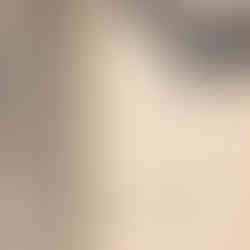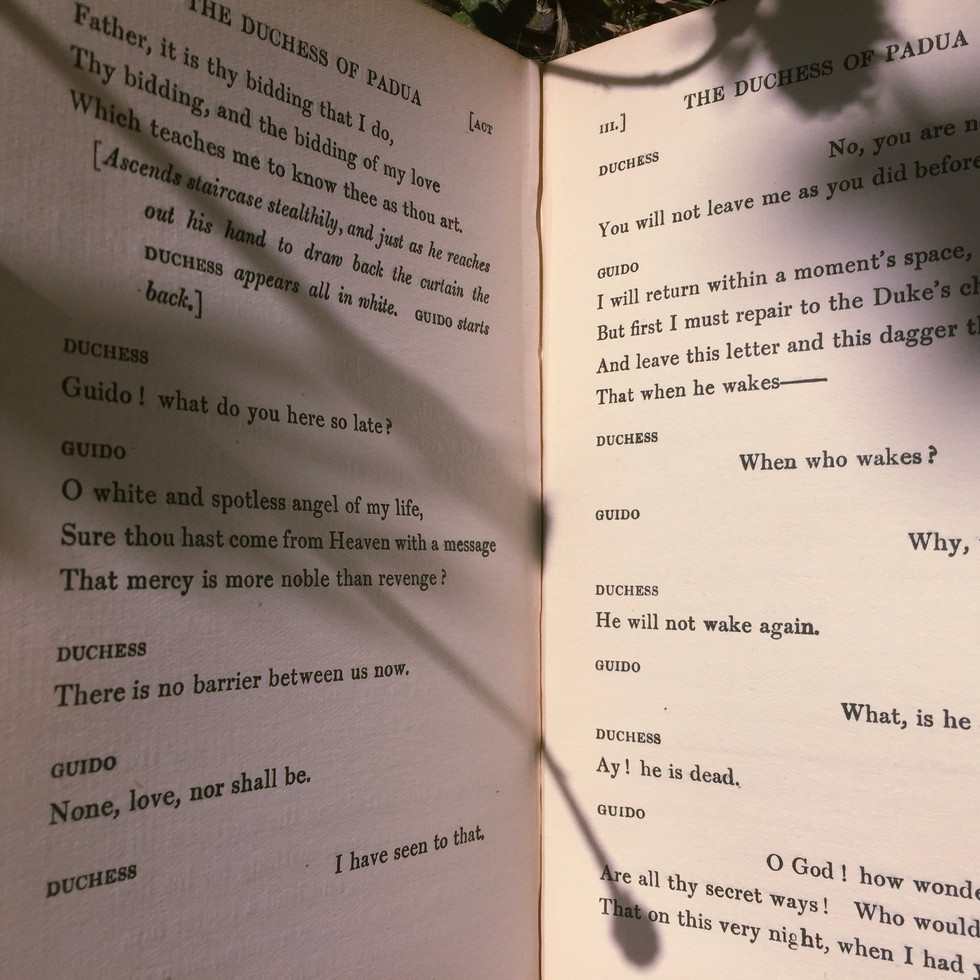Week 3. The Duchess of Padua - Oscar Wilde.
- Hendrikje

- May 29, 2020
- 4 min read
This week’s subject was a wonderful birthday gift from one of my wonderful best friends. I could write a whole blog post just about how beautiful the binding of the book is from publisher Methuen, the pressed emblem into the bottle green of the cover and the way the words have been printed onto the page — but, alas, I’ve tasked myself with commenting on the literary content of the things I read so my drooling over the edition of the book will have to wait until another time. So, this week’s work was ‘The Duchess of Padua’, a revenge tragedy by Oscar Wilde written in 1883. I was intrigued when the play arrived in the mail as I had never heard of it before, despite adoring the other, more famous, works by Wilde that I had read. The title also immediately suggested to me that it was going to be a revenge tragedy (because of its similarity to ‘The Duchess of Malfi’ by Webster) and, having gone through a revenge tragedy phase last summer, I was rather excited.
Interestingly, the play is prefaced with a letter Wilde wrote to Robert Ross, in which he states that the play is “unworthy” of Adela Schuster (to whom it was dedicated) and “unworthy” of himself — he did not believe the play able to give justice to his true intellectual talent. Despite enjoying reading the play on a surface level, it did feel as if Wilde was searching for a Jacobean ideal that simply doesn’t exist. Katherine Worth described the play as “his most heavily derivative play”, elaborating that the “Shakespearean echo is taken to the point of the ludicrous”. Indeed, this may be a little harsh considering it was Wilde’s second play, but it does not hold up as well as the likes of ‘The Importance of Being Earnest’ and ‘Lady Windermere’s Fan’ as Wilde appears to be writing in a voice that simply is not his own. Instead of reflecting his own genius, he is trying to appear of the same kind of genius as Shakespeare and his contemporaries. When Guido, the male protagonist, declares his love for the Duchess he tells her:
“Methinks I am bold to look upon you thus:
The gentle violet hides beneath its leaf
And is afraid to look at the great sun
For fear of too much splendour, but my eyes,
O daring eyes! are grown so venturous
That like fixed stars they stand, gazing at you,
And surfeit sense with beauty.”
It seems to me that this passage has striking similarities with Romeo’s famous soliloquy:
“But soft, what light through yonder window breaks?
It is the east, and Juliet is the sun.
(…)
I am too bold, ’tis not to me she speaks:
Two of the fairest stars in all the heaven,
Having some business, do entreat her eyes
To twinkle in their spheres till they return.”
Paired with the joint suicide of the lovers at the end, there are undoubtable similarities between the two texts as Katherine Worth suggested. It feels as though Wilde was attempting to write a new ‘Romeo and Juliet’ with more mature characters. However, the genius of ‘Romeo and Juliet’ lies in the childish recklessness of the teenagers, so to take away these characteristics makes the play feel stagnant at points (in comparison to the “too like the lightning” nature of Shakespeare’s work). Interestingly, Richard Canning wrote that “Wilde’s storyline can read like Jacobean melodrama by numbers” emphasising that Wilde was writing to emulate an aesthetic of the past, rather than using the Jacobean revenge tragedy format as a springboard to provide a modern commentary. Canning goes on to write that the play “lives so firmly in the distant literary past that even in its Victorian performances, it must have echoed, rather than spoken”. For example, when Moranzone tells Guido to “bring me back his heart upon the blade” the reference to John Ford’s iconic revenge image of a heart on a dagger (seen in his ‘’Tis Pity She’s a Whore’) helps to establish this play firmly in the past. Indeed, the American actress Mary Anderson, for whom Wilde had intended the play, rejected the play because she feared it “would no more please the public of today than would Venice Preserved or Lucretia Borgia” — the moment the play was conceived it was already out of place. Coincidentally, Anderson was also acting in ‘Romeo and Juliet’ at the time, a play that is regarded as a timeless masterpiece and a play that Wilde was heavily influenced by.
Despite considering the work “unfit for publication”, Wilde himself did recognise that “there are some good lines in it” — which is, of course, true. Oscar Wilde was a brilliant writer with remarkable genius but this play feels forced in its use of blank verse and straitjacketed placement in the distant past. ‘The Duchess of Padua’ was Wilde’s second play so it is unsurprising that he was still searching for his distinctive voice — he was in the process of determining what was important to him in terms of aesthetics and the pacing that makes a play feel modern and exciting to watch. There are sparks of genius within this work, such as the following verse which is filled with winsome imagery:
“Ask of the sea-bird if it loves the sea,
Ask of the roses if they love the rain,
Ask of the little lark, that will not sing
Till day break, if it loves to see the day:—
And yet, these are but empty images”
The simplicity of these images, and the repetition of the words “sea” and “day” contained within their lines, show an innocence to this idea of love they express. The way he chooses to balance the three whimsical comparisons with the statement that they are “but empty images” also emphasises the desire for a young lover to please.
Reading this play and researching around it was incredibly interesting, especially as there was so little literary criticism on the play. I would be very intrigued to watch a production of this play to see if it can be brought to life upon the stage — I am fascinated because of Worth’s statement that it is the only completed Wilde play “which can scarcely be imagined in a modern performance”. Also, it is grounding to see the work of a famously well-regarded writer to be criticised as a “failure” and “an embarrassment” (which is, in my opinion, a little harsh) whilst most of his other works are established as masterpieces.










@j4zz1t
I haven't been able to find a Dutch translation of the play, unfortunately! If you want to read the play, I found this online copy (https://www.gutenberg.org/files/875/875-h/875-h.htm) which is in English. :)
Is there a dutch translation of the play?